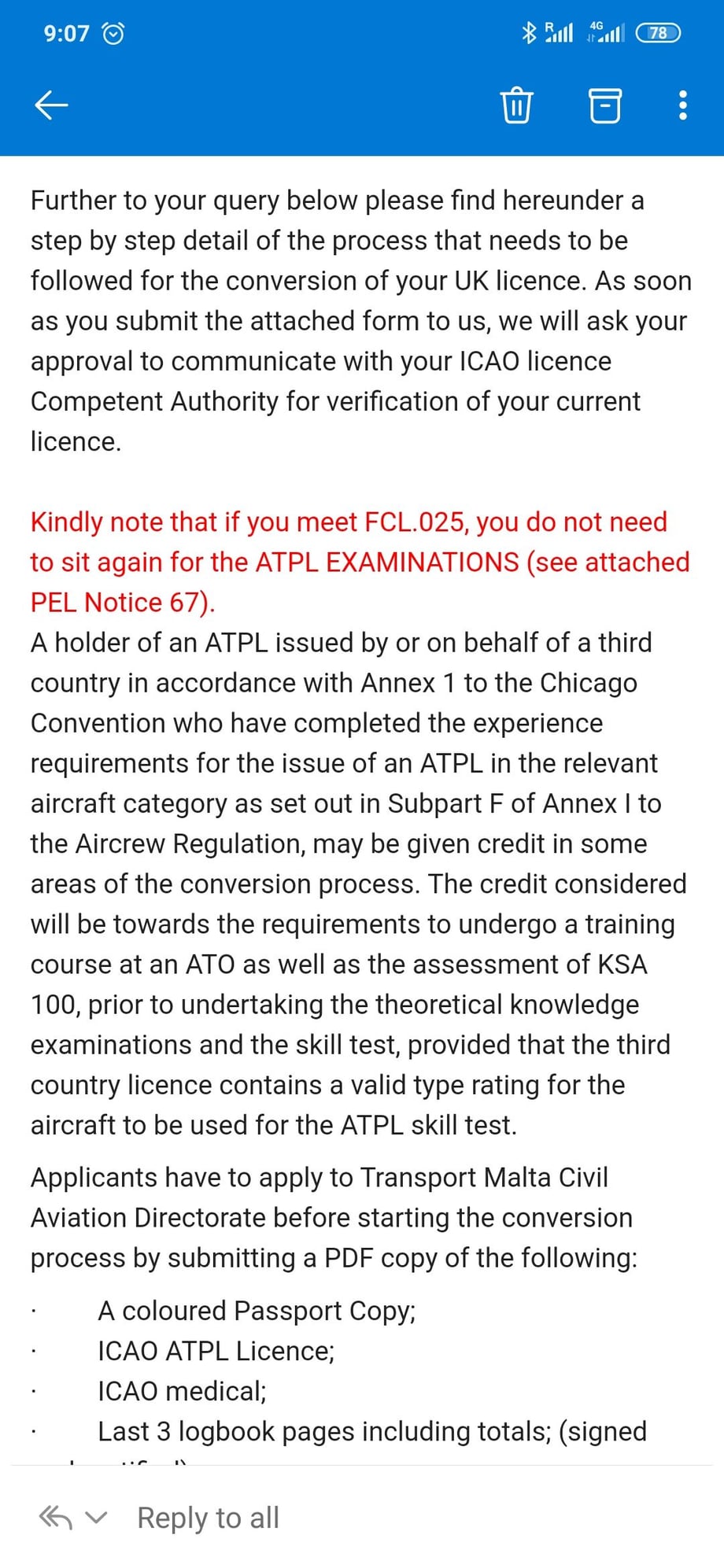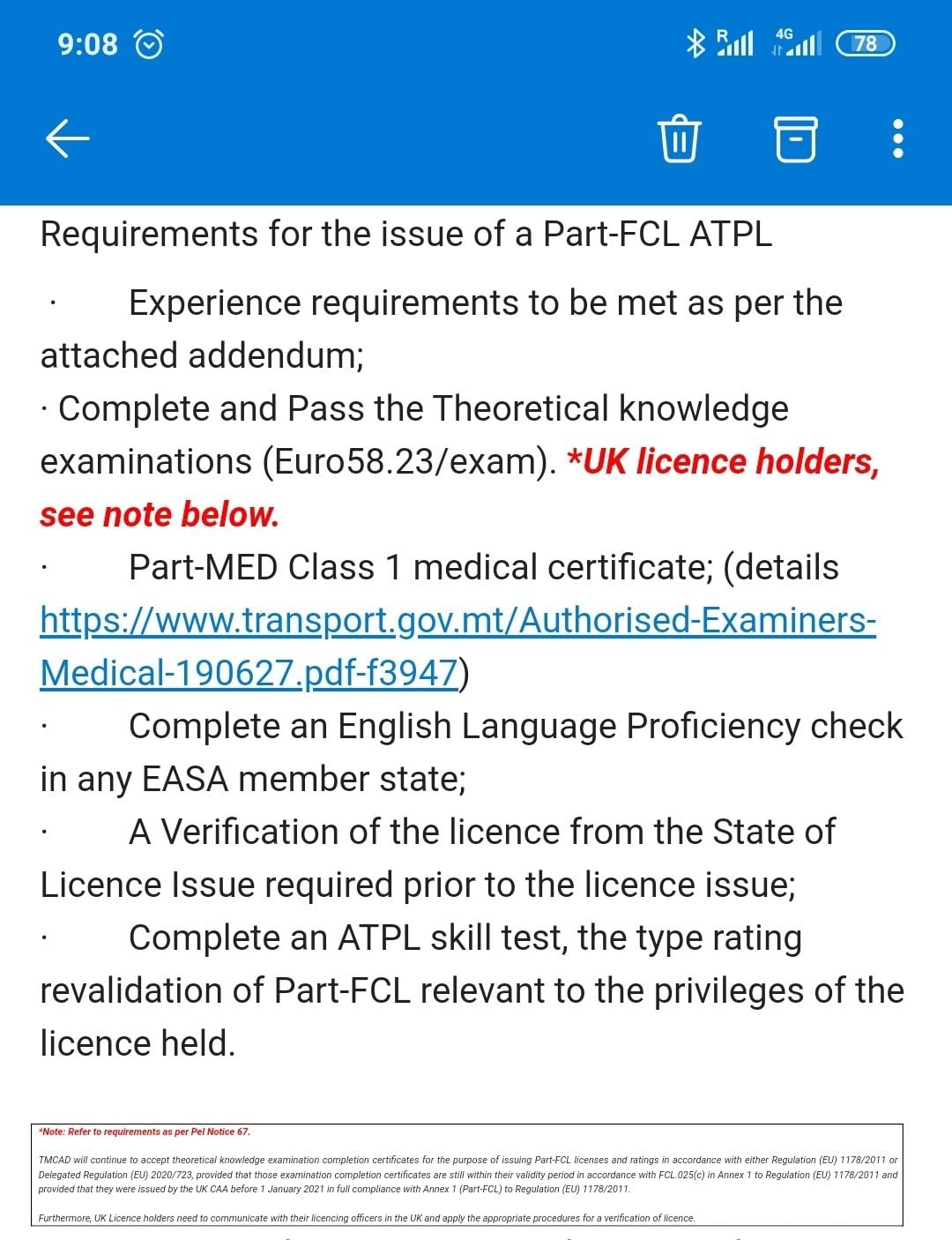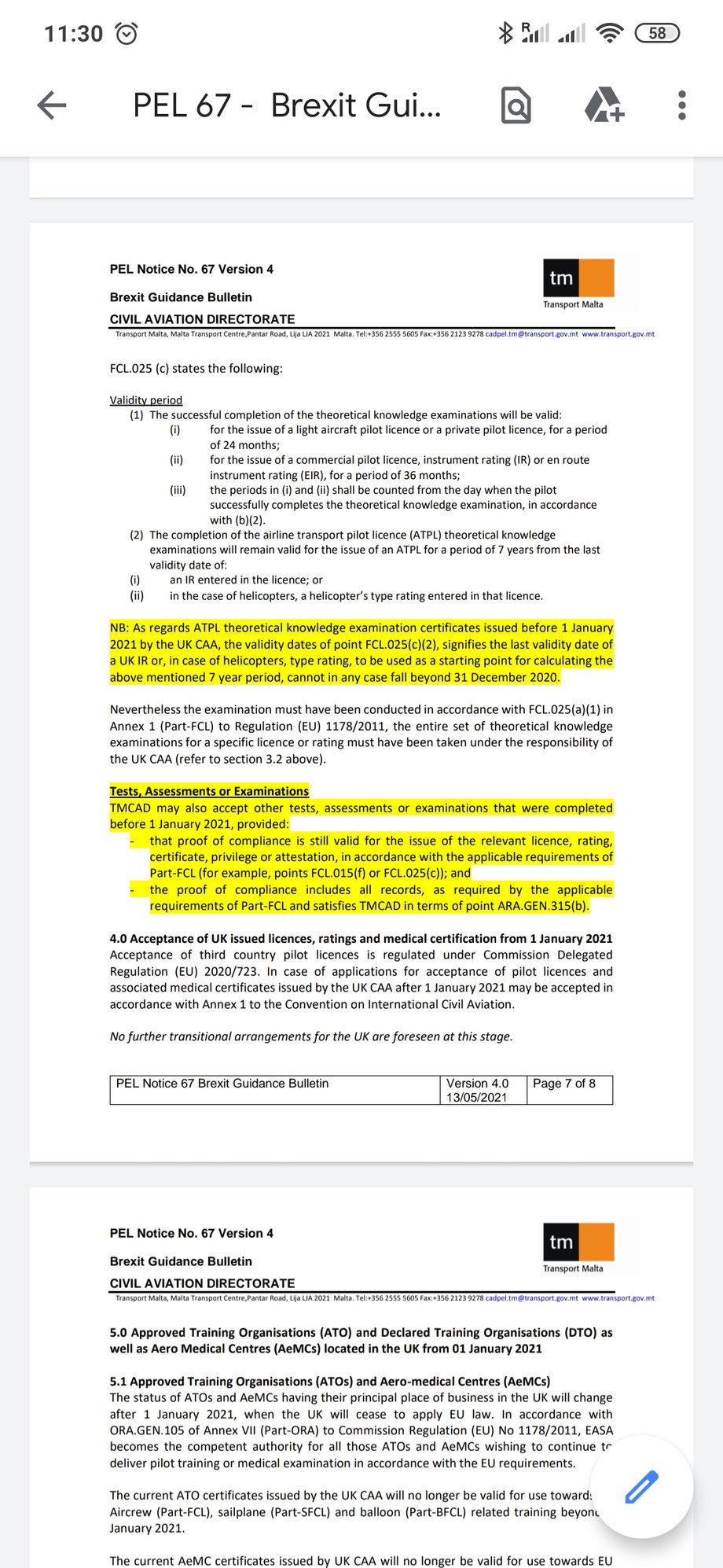Convert EASA ATPLH to UK ATPLH
The CAA link you have quoted clearly states that non-UK EASA licences issued before the cutoff can be converted to UK licences.
The EU has published conversion rules (again it's all in the link you shared) stating what must be done. They've also said that it's up to individual states how that's interpreted.
The general interpretation is that if you passed the EASA ATPL examinations in the UK when it was a member state and they are still valid then those examinations meet that requirement and don't need to be retaken. The 7 year validity rule will be counted from the last EASA IR validity - effectively rendering all UK ATPL exams valid until 2028 at the latest. A victory for common sense.
Obviously any UK-only licences issued post-cutoff do not meet this requirement. The real victims at the moment are those who held a UK-issued EASA licence but who were grandfathered into EASA, since they never took the exams in the first place.
Yes really.
They've also said that it's up to individual states how that's interpreted.
The general interpretation is that if you passed the EASA ATPL examinations in the UK when it was a member state and they are still valid then those examinations meet that requirement and don't need to be retaken.
They've also said that it's up to individual states how that's interpreted.
The general interpretation is that if you passed the EASA ATPL examinations in the UK when it was a member state and they are still valid then those examinations meet that requirement and don't need to be retaken.
https://www.enac.gov.it/sicurezza-ae...-easa-part-fcl
Hereís Italy! My Italian colleague says itís for previous holders of Italian licence.
Hereís Italy! My Italian colleague says itís for previous holders of Italian licence.
Join Date: Jun 2012
Location: Barcelona
Posts: 10
Likes: 0
Received 0 Likes
on
0 Posts
I hold an EASA licence and I'm in the process to obtain the UK CAA. I'm not currently flying in the UK but I would be interested in keeping it if an opportunity arises in the future. Should I first pass the initial class 1, or can I also start the conversion and provide the Class 1 later on once in my hands?
What are the requirements to maintain the CAA licence? May I lose the licence if I don't renew the class 1?
Thanks!
What are the requirements to maintain the CAA licence? May I lose the licence if I don't renew the class 1?
Thanks!
Medical requirements
Before we can issue a UK Part-FCL licence, the pilot must hold a UK PART-MED medical certificate with medical records held on the United Kingdom CAA Medical Records System. We are unable to accept EASA medical certificates.This is from:
https://www.caa.co.uk/Commercial-ind...alent-licence/
Interesting that, after your earlier comments, I specifically looked at Malta as an example of what I can imagine might be a more 'flexible' regulator. However, what they publish does not match your comments unless they have changed their policies in the meantime: https://www.transport.gov.mt/PEL-67-...on-4.pdf-f6395
I guess it depends on whether you're a glass-is-half-full or a glass-is-half-empty kind of person? I interpret that document to mean they will honour pre-cutoff UK exam results. Here is the actual email I received from Transport Malta:




Join Date: Oct 2021
Location: London
Posts: 7
Likes: 0
Received 0 Likes
on
0 Posts
Are you 100% sure that EASA licence holders can operate G reg? Will EASA holders after 2022 have to resit all 14 ATPL's again if they want to obtain a UK CAA license as well?
Join Date: Nov 2012
Location: Somerset
Age: 51
Posts: 18
Likes: 0
Received 0 Likes
on
0 Posts
Yes really.
The CAA link you have quoted clearly states that non-UK EASA licences issued before the cutoff can be converted to UK licences.
The EU has published conversion rules (again it's all in the link you shared) stating what must be done. They've also said that it's up to individual states how that's interpreted.
The general interpretation is that if you passed the EASA ATPL examinations in the UK when it was a member state and they are still valid then those examinations meet that requirement and don't need to be retaken. The 7 year validity rule will be counted from the last EASA IR validity - effectively rendering all UK ATPL exams valid until 2028 at the latest. A victory for common sense.
Obviously any UK-only licences issued post-cutoff do not meet this requirement. The real victims at the moment are those who held a UK-issued EASA licence but who were grandfathered into EASA, since they never took the exams in the first place.
The CAA link you have quoted clearly states that non-UK EASA licences issued before the cutoff can be converted to UK licences.
The EU has published conversion rules (again it's all in the link you shared) stating what must be done. They've also said that it's up to individual states how that's interpreted.
The general interpretation is that if you passed the EASA ATPL examinations in the UK when it was a member state and they are still valid then those examinations meet that requirement and don't need to be retaken. The 7 year validity rule will be counted from the last EASA IR validity - effectively rendering all UK ATPL exams valid until 2028 at the latest. A victory for common sense.
Obviously any UK-only licences issued post-cutoff do not meet this requirement. The real victims at the moment are those who held a UK-issued EASA licence but who were grandfathered into EASA, since they never took the exams in the first place.
Who knows? You'd have thought that demonstrating that you held an EASA licence would be the same as showing them exam results, again it's all down to interpretation. I wouldn't give up until I'd tried every member state!
Last edited by rudestuff; 23rd Oct 2021 at 19:47.
I might be one of those victims! I originally got my ATPL theory credit through a combination of a few EASA exams and military exemptions. This satisfied EASA's ATPL theoretical knowledge prior to Brexit. Under the above scheme, do you think someone like Malta would still insist on seeing 14 exam passes despite an individual already holding an ATPL that was fully EASA compliant until last year?
Join Date: Jan 2007
Location: Europe
Posts: 77
Likes: 0
Received 0 Likes
on
0 Posts
Your UK issued EASA is now a UK licence.if you put any renewals onto it where you need to send it back to UK CAA it will come back without any mention of EASA printed onto it. You can currently fly only G reg aircraft on this licence. If you want an EASA licence aswell you have missed the cut off date to transfer but in the future this may change.( Theres a possibility to apply initial EASA through for instance with Malta,for a separate stand alone EASA licence based on previous taken ATPL exams) When you next renew your class one it will only have UK CAA printed onto it aswell .
justasmallfire - thanks for that 

There is one thing that I am not clear with the example of Malta, that is if you convert your UK license (as opposed to validate) will you loose your UK license or can you keep both if you are successful in the process?
Join Date: Nov 1998
Location: UK
Posts: 460
Likes: 0
Received 0 Likes
on
0 Posts
Yes, under validation until Dec 2022. Post this date who knows but why would you wait to find out? Perhaps if there are some mutual licensing agreements between the UK and the EU by 2023 then it may still be possible to get an EASA licence but judging by the freedoms, cabotage etc. that have been negotiated so far, I seriously doubt that this is going to happen anytime soon. As with all things EU, there are a lot of states that have to be in agreement and we have to accept that we are very much a third country in the eyes of EASA.




